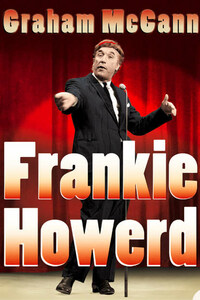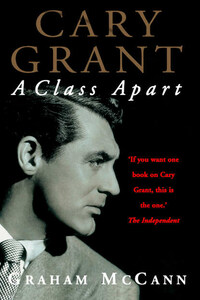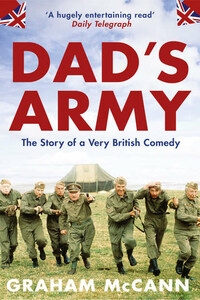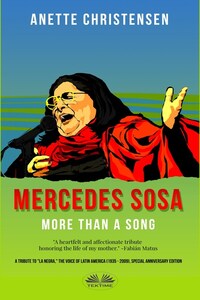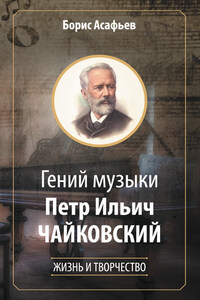Fourth Estate
An imprint of HarperCollinsPublishers 1 London Bridge Street London SE1 9GF
www.harpercollins.co.uk
This edition published by Harper Perennial 2005
First published by Fourth Estate 2004
Copyright © Graham McCann 2004
Graham McCann asserts the moral right to be identified as the author of this work
A catalogue record for this book is available from the British Library
All rights reserved under International and Pan-American Copyright Conventions. By payment of the required fees, you have been granted the nonexclusive, nontransferable right to access and read the text of this e-book on-screen. No part of this text may be reproduced, transmitted, downloaded, decompiled, reverse engineered, or stored in or introduced into any information storage and retrieval system, in any form or by any means, whether electronic or mechanical, now known or hereinafter invented, without the express written permission of HarperCollins e-books.
HarperCollinsPublishers has made every reasonable effort to ensure that any picture content and written content in this ebook has been included or removed in accordance with the contractual and technological constraints in operation at the time of publication.
Source ISBN: 9781841153117
Ebook Edition © FEBRUARY 2016 ISBN: 9780007369249 Version: 2016-02-08
Now listen, brethren. Before we begin the eisteddfod, Iâd like to make an appeal â¦
Now, er, Ladies and Gentlemen. Harken. Now, ah, no: harken.
Listen, now. Harr-ken. Harr-ever-so-ken!>1
It was not so much the look of someone who did not belong. It was more the look of someone who did not belong up there.
He looked as if he belonged in the audience. He looked as if he had strayed on to the stage by mistake. He fiddled with the fraying fringe of his chestnut-brown hairpiece, fidgeted with the folds of his chocolate-brown suit (âMake meself comfy â¦â), and then he started: âI just met this woman â no, oh no, donât, please, donât laugh. No. Liss-en!â He did not sound as if he was performing under a proscenium arch. He sounded as if he was gossiping over a garden wall.
That was Frankie Howerd. He did not seem like the other stand-up comedians. He seemed more like one of us.
The other stand-up comics of his and previous eras came across as either super-bright or super-dim.>2 Most of them, like Max Miller, were peacocks: slick and smart and salesman-sharp, they were happy to appear far more experienced, more assured and more articulate than any of those who were seated down in the stalls. The odd one or two, such as Tom Foy, were strange little sparrows: slow, fey and almost painfully gauche, they were the kind of grotesque, cartoon-like fools to whom even fools could feel superior.
No stand-up, until Howerd, came over as recognisably real: neither too arch a âcharacterâ nor too obvious a âturnâ, but almost as believably unrehearsed, untailored, unshowy, unsure and undeniably imperfect as the rest of us. Frankie Howerd, when he arrived, was genuinely different. He was the first British stand-up to resemble a real person, rather than just a performer.
He became, as a result, the most subversive clown in the country. What made him so subversive was not the fact that he dared to make a mockery of himself â any old clown can do that â but rather the fact that he dared to make a mockery of his own profession. He was the clown who made a joke out of the job of clowning.
Everything about the vocation, he suggested, was onerous, absurd, unrewarding and unbearably demeaning. He bemoaned, for example, the routine maltreatment meted out by the management: âIâve had a shocking week. Shocking. Whatâs today? Tuesday. It was last Monday then. The phone rang, and it was, er, yâknow, um, the bloke who runs the BBC. Whatsisname? You know: âThingâ. Yeah. Anyway, he was on the phone, you see. So I accepted the charge â¦â
He also complained about his ill-fitting stage clothes: âOoh, my trousers are sticking to me tonight! Are yours, madam? Then wriggle. Thereâs nothing worse than sitting in agony.â Similarly, he never hesitated to express the full extent of his resentment at being saddled with such an ancient and incompetent accompanist: âNo, donât laugh. Poor soul. No, donât â it might be one of your own. [
